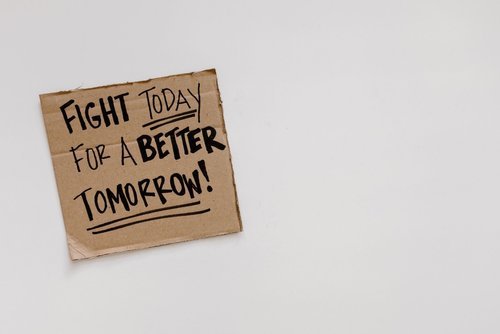
Educational Blogs from Our Mental Health Therapists
Learn about common challenges, including depression, anxiety, relationships,
trauma, and more, written by Maryland therapists!
Topic
- Anxiety
- Art in Therapy
- Biases
- Boundary Setting
- Brainspotting
- Burnout
- Business Owners
- COVID-19
- Careers
- Children & Teens
- Cognitive Behavioral Therapy (CBT)
- College Students
- Communication Skills
- DIY Crafts
- Depression
- Dialectical Behavior Therapy (DBT)
- Emotional Regulation
- Faith-Based
- First Responders
- Grief and Loss
- Highly-Sensitive Person
- International Clients
- Internships
- Ketamine-Assisted Psychotherapy
- LGBTQIA
- Men's Issues
- Mindfulness
- Motivation
- Neurodivergence
- Online Counseling
- Oppression
- Parenting
- Recovery
- Relationships
- Resources
- Sex Therapy
- Trauma and PTSD
- Women's Issues
- Workshop
Important Mental Health Awareness Dates to Add to Your Calendar
Every year, several organizations and programs dedicate time to bring awareness to certain topics, including mental health, substance use, stress management, and more. Over the course of the year, each organization and/or program brings awareness, reduces stigma, offers a variety of shareable resources, and hosts helpful events locally and nationally. If you’re looking to learn more about a particular topic, share helpful resources, and partake in local opportunities, be sure to mark your calendars with these important dates!
Helpful Strategies to Assist with Tackling Culture-Related Struggles
Multicultural counseling does not provide quick solutions. I understand that in front of me is a unique person with a rich history of cultural interactions. This is their journey toward the fruition of their own identity. This is not just about culture. This is about who they are as a person and whether they are ready, and how to get ready to bring wholeness and self-leadership into their identity. In multicultural counseling, we explore what is a relationship that one wants to develop with their own culture and other cultures? And more importantly, how to get there? I feel honored to be on this journey with many clients. I found the following strategies really helpful to support this personal growth.
How to Start Becoming a More Transgender Inclusive and Gender-Affirming Person
The out transgender and gender non-binary (TGNB) populations are among the fastest-growing populations in the United States. What this means is that you are likely to know someone who identifies as TGNB. They could be your neighbor, a family friend, they could even be your child. So now what? How do you treat them with dignity, respect, and worth as human beings? How do you learn to respect their individuality and be a supportive person in their life?
How to Start Becoming a More Transgender Inclusive and Gender-Affirming Therapist
According to the American Counseling Association (ACA) Code of Ethics, we are responsible to respect the dignity and promote the wellness of our clients. What does this mean for therapists when working with TGNB clients? This means that we must make it a priority to have at least a baseline understanding of what it means to be TGNB and an understanding of how we can support their well-being. As with most marginalized communities, the TGNB community is often discriminated against, mistreated, misunderstood, and faces psychological trauma as a result. In light of this, what can we do to be trans-inclusive and gender-affirming therapists?
The Effects of Mental Health Stigmas and How to Combat Them
This is an honest talk about stigmas about mental health. Everyone has mental health so the understanding of stigma and its effects are very important! Stigma can make people feel ashamed about something that is not their fault. Stigmas about mental health can create unhelpful beliefs about treatment and prevent people from seeking the professional mental health services they need. All of us can help fight against stigma. The question is: How can you help fight against mental health stigma?
Blindspots, Broccoli, and Hot Topics
In a previous blog I talk about blindspots being comparable to having broccoli in your teeth. Everyone but you can see the broccoli in your teeth. The broccoli can be thought of as our off-putting behaviors, the things we do that rub people the wrong way, without our realizing it. Like the broccoli, everyone else but us realizes that the behavior is unattractive. In cases with actual broccoli or off-putting behaviors, there’s a decision to be made. Do I point out “the broccoli” or say nothing at all?
Clinical Supervision: Talking About Oppression and Other Biases in Therapy
How do we tackle the difficult societal topics of racism, sexism, and other forms of bias, stereotyping, discrimination and oppression when working with our clients in therapy?
We embrace these issues just as we embrace our clients - with the clinical skills we’ve been taught and the inherent attributes we have as mental and behavioral health professionals. Take a moment to think about what those skills and attributes are. Whatever these mean to you, a key denominator for mutual respect and authenticity in a therapeutic relationship is an understanding that no topic is taboo.







